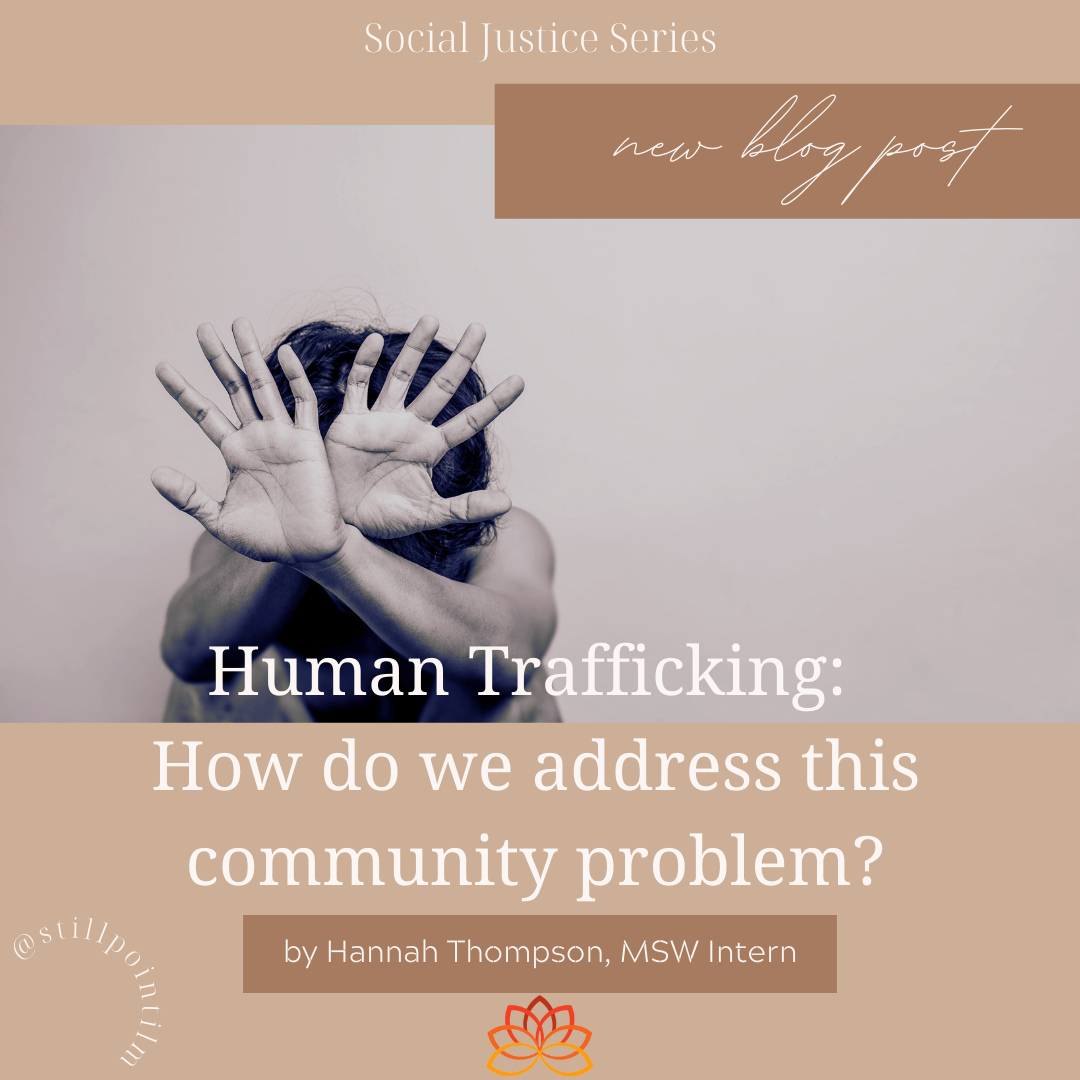Human Trafficking: How Do We Address This Community Problem?
by Hannah Thompson, MSW Intern
Human trafficking in North Carolina is much more common than people think. North Carolina is ranked #8 out of all the United States and a huge factor is because of our own city of Wilmington. Wilmington is known as a port city which allows major interstates for car travel, as well as trains and boats. North Carolina also hosts large sporting events along it’s coastal and mountain vacation areas, making it easy for movement of cargo and vehicles which makes the abduction and selling of people even easier.
To back up a little and help to help understand human trafficking, it is defined as “using force, fraud and or coercion to make someone perform labor or sex acts for profit”. Many people assume human trafficking is related to only sex acts; however, it is also related to forced working against the worker’s will. Abduction is very common among human trafficking, as well as coercion. Force, fraud, and coercion don’t have to be present, because any commercial sex act with minors is considered trafficking. There are some specific risk factors when it comes to human trafficking. These include profiling for victims who have already been victimized previously, those who have experienced of maltreatment, or individuals in family dysfunction. It has been discovered even here in Wilmington that there have been abductors who watched the homes of young girls who live alone for the purpose of adduction.
Identifying victims is very important, but it is not an easy task to identify. Many victims do not come forward out of fear of blame, or shame and humiliation. There are also time that the victim feels some sort loyalty to the trafficker or lack clear hope that they could take care of themselves and maintain safety in another situation. Some things that help to identify victims include physical signs of abuse and frequent emergency visits can be red flags to explore further for professionals. Additionally, tattoos on young individuals is a very consistent and common way to identify victims as it is illegal to be tattooed under the age of 18.
There have been safe harbor laws that support victims of human trafficking. These include:
1. Mistake of age cannot be used as a defense
2. Consent of a minor under the age of 18 cannot be used as a defense
3. All minors underage of 18 are protected from prosecution for charges of prostitutions
The safe harbor laws are necessary because sex traffickers often target runaway and homeless youth, as well as children who have been abused or neglected as earlier noted. When minors are forced to engage in commercial sex, it places them at risk for prosecution under prostitution laws if cases end up going to court. Safe Harbor laws ensure that trafficked children are treated as victims, not criminals, and provide access to medical care, safe housing, remedial education, and counseling services.
Social workers are among some of the professionals that helping to address this community problem. As social workers and therapists it is vitally important to be informed about effective ways to work with and support survivors. A Social worker in Chapel Hill at UNCW Chapel Hill has been working with victims for over 10 years and found the most important way to approach this is to create a safe space. Social workers can play a role in providing support directly to those victimized through advocacy, psycho-educational, and clinical interventions. Additionally, social workers are working with other people to address the macro problems of abuse, neglect, homelessness, substance use, and other community problems that influence the presence of human trafficking. As social workers, we value all people, and together as a profession, we can educate the population we are working with and work to obtain social justice for all.
